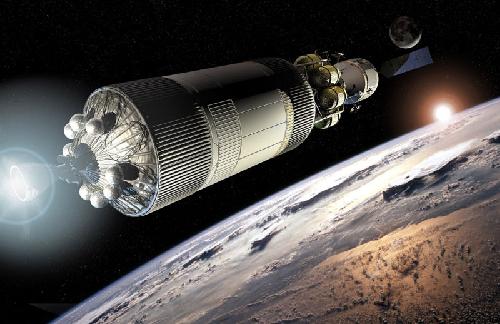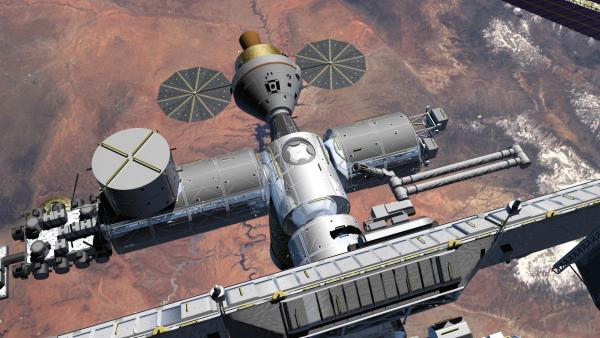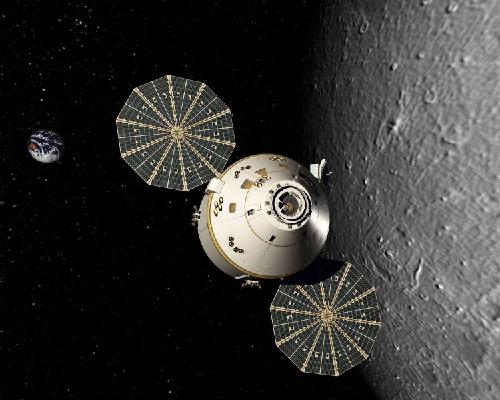Wavepacket Blog only displaying 'science' posts |
> |
| 2012 | |
| August | |
| Sun Aug 5 17:00:31 2012 Mars is Dumb |
|
| 2010 | |
| July | |
| Sun Jul 25 22:24:41 2010 Little Green Men |
|
| May | |
| Fri May 21 23:30:08 2010 Space Plan |
|
| >> Older entries >> | |
| >> links >> | |
| Sun Aug 5 17:00:31 2012 Mars is Dumb Why the persistent fascination? |
|||||||
| Tonight, in just a few hours, NASA will
attempt to land the Curiosity rover on Mars, in what will be one of the more remarkable engineering feats of the decade.
It is very exciting. I'm going to watch the live feeds if I can, and I certainly wish all the teams luck. That said, why is everyone so interested in Mars? Compared to other bodies in the solar system, it doesn't really have much to recommend it. Former President George Bush declared that NASA's next mission should be to land people on Mars by 2020, although I'm not sure why. His plan was scrapped in 2010 (I noted that at the time: Space Plan). Fortunately for us all, Bush is still working on his plan. Manned missions to Mars have been very popular for some time. I can see why landing people on Mars looked cool in 1960, when it looked like everyone would have personal rocket ships by 1990. But as the realities of space flight--and science--have set in, a Mars landing looks increasingly expensive, dangerous, and meaningless. As I've noted before ( No Moon), manned missions are currently considered suicide and we don't have a feasible way to get human beings to get to Mars orbit and back, not even counting the problems of landing and then taking off again. Why are people so keen to get to Mars? Some of the ideas I've seen so far... 1. We may someday terraform Mars and live on it. This is bogus for many reasons. We are generations away from terraforming anything. Mars doesn't have enough gravity to hold an atmosphere (it's current atmosphere is about 1/1000th of Earth's atmosphere--it is basically vacuum). And Mars has no magnetosphere, so anything running around on the planet will be constantly zapped by high-energy particles from the Sun. Mars will never be habitable, except for bunkers buried deep underground, or space stations, and we can do that anywhere. 2. There may be life on Mars. At this point, almost all planetary scientists believe we'll discover life all over the place. Maybe not multicellular life, but certainly basic single-cell organisms. Nonetheless, being the first to prove that life exists somewhere else will be a huge career boost for whoever does it. However, Mars is not the best place in the solar system to look for life: Europa is. Europa, the ice-covered moon of Jupiter, is believed to contain oceans of water that could harbor life. If you are looking for life, past or present, Europa is a much better choice than Mars. Still, people are gaga about Mars. The latest proposal is to send people to Mars with a one-way ticket. The theory is that people will be willing to live on Mars as the first inhabitants, even though they won't be able to get home or even reproduce. I'm all for people being free to do what they want, so if people want to go, more power to them. Still, do the volunteers realize that living in Antarctica instead would be thousands of times easier? Fortunately, there appear to be more sane targets for space exploration, such as asteroids. Asteroid-based missions have more potential to be immdiately useful, such as mining or learning how to deflect a killer asteroid. So although I hope tonight's landing will be successful and exciting, I also hope people start to realize Mars isn't where we should be spending all of our time and limited exploration money. Comments |
Related: > science < economics Unrelated: books energy environment geopolitics lists mathematics predictions |
||||||
| Sun Jul 25 22:24:41 2010 Little Green Men SETI's poor strategy may save humankind... |
|||||||
| Lately,
Stephen Hawking made news with his comments that attempting to find or contact advanced
civilizations are dangerous because we might tempt
"nomads, looking to conquer and colonize". That is, we might attract predators (maybe even like
these).
Proponents of SETI aren't worried, and continue to look for radio signals from extraterrestrials. Even our own local billionaire, Paul Allen, has jumped on to the SETI bandwagon with his own set of radio telescopes. Some of the arguments against Hawking are valid. This article has some great points, for instance. Even a predatory advanced civilization could get whatever materials it needed without bothering with Earth. However, I think Hawking is worth listening to. There is a chance we could meet someone friendly, but every known example of advanced contact has turned out very, very badly for the contacted civilizations. To quote Wikipedia:
So on balance, why take the risk of attracting the attention of a dangerous advanced civilization? However, there is another reason I think SETI is a waste of money and resources. As it turns out, an advanced civilization wouldn't send us electromagnetic signals anyway. Looking for radio signals is almost certainly a waste of time. In 2004, two researchers submitted a letter to Nature. In it, they calculated the energy it would take to continuously broadcast radio (or other) signals throughout the galaxy, or even neighborhoods of the galaxy, vs. just sending physical objects to candidate systems. As they note in their abstract:
Their calculations were pretty back-of-the-envelope, and pretty compelling. Sending physical objects would be millions of times more efficent than beaming radio waves. Any advanced civilization would be foolish to broadcast messages. I remember when the Letter to Nature came out. Commentary noted something to the effect that we'd be better off sending probes to the Lagrange points of our gas giants than listening for radio signals. It's kind of a trippy idea: there may be ancient alien probes dormant in our solar system, waiting for us to find them! However, even though the math is simple and the conclusion obvious (no one would try to contact us by radio waves) SETI is still looking for radio signals. Given that Stephen Hawking thinks advanced civilizations may be dangerous, perhaps it is a good thing that SETI is barking up the wrong tree! Comments |
Related: > science < Unrelated: books economics energy environment geopolitics lists mathematics predictions |
||||||
| Fri May 21 23:30:08 2010 Space Plan Now I have even more respect for the new NASA direction. |
|||||||
| A friend of mine is the Astronomy columnist for the
Seattle Examiner. If you are interested in Astronomy in the Seattle area, you should definitely read
his articles!
He recently posted an article about former NASA administrator Michael Griffin's talk at the Boeing Museum of Flight, in which Griffin wasn't entirely supportive of the new NASA direction. In particular,
Harsh! Griffin called the new direction "Obama's proposals", although most of them came from the so-called Augustine Report, the outcome of the Review of US Human Spaceflight Plans Committee. You can find the Augustine Report here, which is very readable! If you are at all interested in the US space program I recommend flipping through it. It is over 150 pages (ack) but I read through the Introduction (Chapter 1), the coverage of current programs (Chapter 4), and their evaluation of critical technologies (Chapter 7). It is a pretty interesting report! Popular Mechanics has an online article about 5 Surprising Passages from the Full Augustine Report. [If you flip through the report, on page 12 you'll find an awesome diagram showing the International Space Station, color-coded by which country supplied the components. It is clear that the ISS is almost exclusively a US and Russian venture, although Japan kicked ass (far above the European contributions). Although, before I deride Europe too much, I should given them the benefit of the doubt--they may have recognized early on that the ISS was a colossal waste of money.] Michael Griffin also didn't like the Augustine Report "which he feels got some things right but blew many others." Many astronauts also don't like the new direction. Neil Armstrong and Eugene Cernan, the first and last astronauts on the moon, testified to the Senate that
Ouch! However, not all astronauts agree with them. For instance, Russell Schweickart recently wrote that the new direction was a much-needed change. Schweickart noted
And of course, my own blog posts ( No Moon and Moon Shot ) significantly elevated the national debate. Recently The Space Review ran a series on the new direction (see part 1 and part 2 ). The review is somewhat politically-heavy (for instance, worrying that a more efficient NASA will mean less pork to keep congress happy) but basically calls out the main differences of Obama's plan:
Obama's plan is good about separating the many phases of launching people and material into orbit. For instance, both the Shuttle and the Constellation programs have the same problem: they use the same vehicles for people and cargo. This is very expensive, since any manned vehicle has huge overhead for safety! Separating the two (launching people and cargo using different vehicles) is much cheaper and may be more reliable--and safer. Also, Obama's plan puts more funding into private space companies for launches into low earth orbit. This wasn't a viable option ten or twenty years ago, but it is now. And it means that we'll build out our private launch industries, let them spread the risk and try out new technologies, and let NASA focus on other issues such as deep-space propulsion and life support. Much better! So I understand why many people aren't happy about he change in direction. And certainly Michael Griffin is worried about his legacy. But the new NASA direction looks better and better the more I look at it. Comments |
Related: economics > science < Unrelated: books energy environment geopolitics lists mathematics predictions |
||||||
| Links: |  |
Blog Directory | Blog Blog | Technorati Profile | Strange Attractor |





